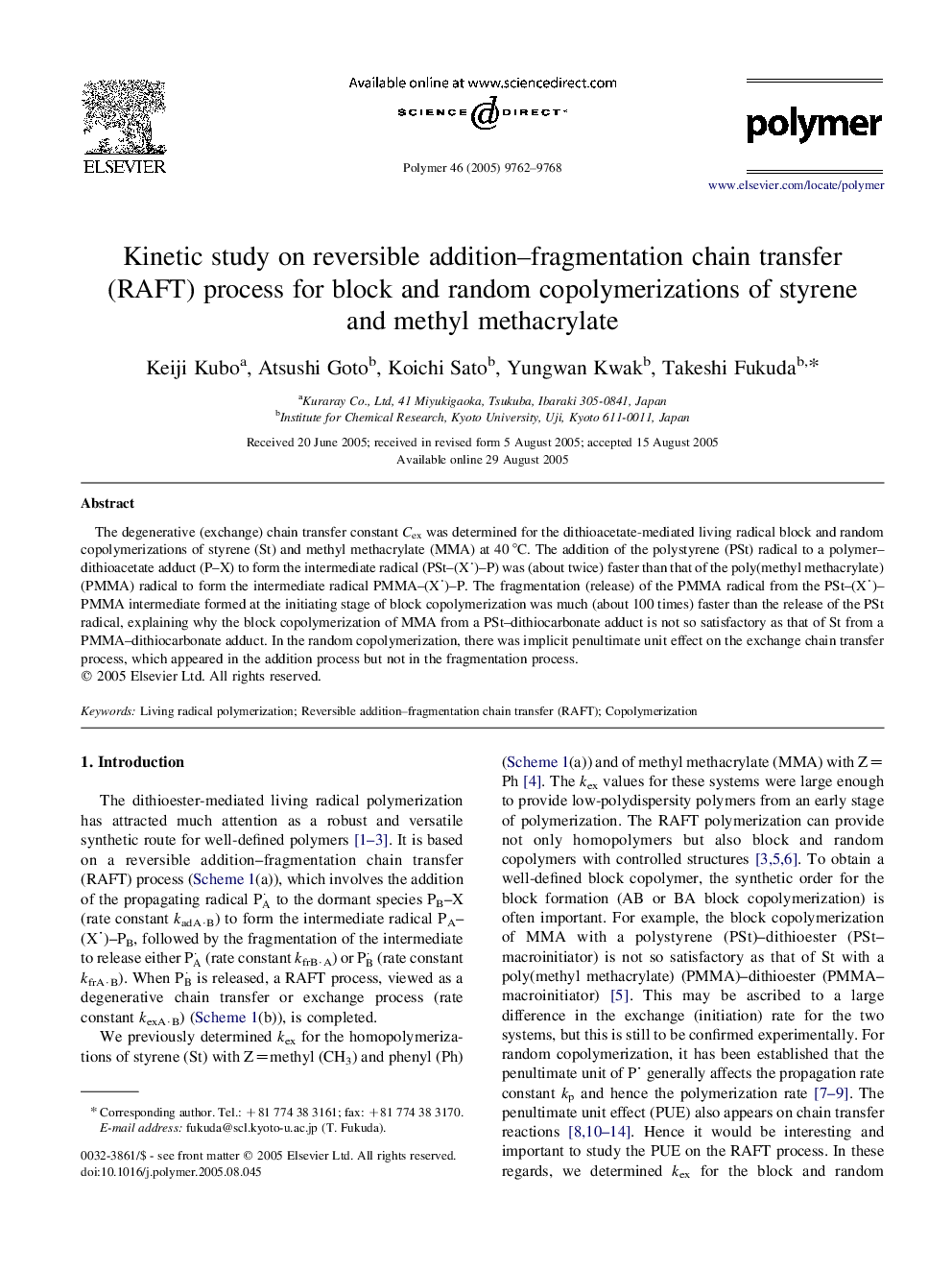| Article ID | Journal | Published Year | Pages | File Type |
|---|---|---|---|---|
| 5189845 | Polymer | 2005 | 7 Pages |
Abstract
The degenerative (exchange) chain transfer constant Cex was determined for the dithioacetate-mediated living radical block and random copolymerizations of styrene (St) and methyl methacrylate (MMA) at 40 °C. The addition of the polystyrene (PSt) radical to a polymer-dithioacetate adduct (P-X) to form the intermediate radical (PSt-(X)-P) was (about twice) faster than that of the poly(methyl methacrylate) (PMMA) radical to form the intermediate radical PMMA-(X)-P. The fragmentation (release) of the PMMA radical from the PSt-(X)-PMMA intermediate formed at the initiating stage of block copolymerization was much (about 100 times) faster than the release of the PSt radical, explaining why the block copolymerization of MMA from a PSt-dithiocarbonate adduct is not so satisfactory as that of St from a PMMA-dithiocarbonate adduct. In the random copolymerization, there was implicit penultimate unit effect on the exchange chain transfer process, which appeared in the addition process but not in the fragmentation process.
Keywords
Related Topics
Physical Sciences and Engineering
Chemistry
Organic Chemistry
Authors
Keiji Kubo, Atsushi Goto, Koichi Sato, Yungwan Kwak, Takeshi Fukuda,
